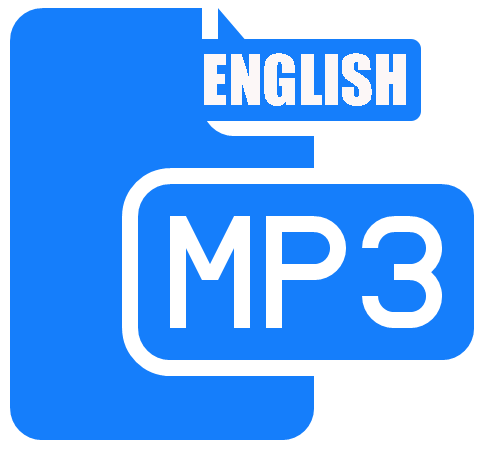Khi ý thức được rằng giá trị của cuộc sống nằm ở chỗ là chúng ta đang sống, ta sẽ thấy tất cả những điều khác đều trở nên nhỏ nhặt, vụn vặt không đáng kể.Tủ sách Rộng Mở Tâm Hồn
Chiến thắng hàng ngàn quân địch cũng không bằng tự thắng được mình. Kinh Pháp cú
Đừng cư xử với người khác tương ứng với sự xấu xa của họ, mà hãy cư xử tương ứng với sự tốt đẹp của bạn. (Don't treat people as bad as they are, treat them as good as you are.)Khuyết danh
Mặc áo cà sa mà không rời bỏ cấu uế, không thành thật khắc kỷ, thà chẳng mặc còn hơn.Kinh Pháp cú (Kệ số 9)
Hạnh phúc không phải là điều có sẵn. Hạnh phúc đến từ chính những hành vi của bạn. (Happiness is not something ready made. It comes from your own actions.)Đức Đạt-lai Lạt-ma XIV
Xưa, vị lai, và nay, đâu có sự kiện này: Người hoàn toàn bị chê,người trọn vẹn được khen.Kinh Pháp cú (Kệ số 228)
Hạnh phúc đích thực không quá đắt, nhưng chúng ta phải trả giá quá nhiều cho những thứ ta lầm tưởng là hạnh phúc. (Real happiness is cheap enough, yet how dearly we pay for its counterfeit.)Hosea Ballou
Sự kiên trì là bí quyết của mọi chiến thắng. (Perseverance, secret of all triumphs.)Victor Hugo
Kẻ ngốc nghếch truy tìm hạnh phúc ở xa xôi, người khôn ngoan gieo trồng hạnh phúc ngay dưới chân mình. (The foolish man seeks happiness in the distance, the wise grows it under his feet. )James Oppenheim
Người cầu đạo ví như kẻ mặc áo bằng cỏ khô, khi lửa đến gần phải lo tránh. Người học đạo thấy sự tham dục phải lo tránh xa.Kinh Bốn mươi hai chương
Tôi không hóa giải các bất ổn mà hóa giải cách suy nghĩ của mình. Sau đó, các bất ổn sẽ tự chúng được hóa giải. (I do not fix problems. I fix my thinking. Then problems fix themselves.)Louise Hay
Trang chủ »» Danh mục »» THUYẾT GIẢNG GIÁO PHÁP »» Stillness Speaks »» Chapter 10: Suffering and the End of Suffering »»
Stillness Speaks
»» Chapter 10: Suffering and the End of Suffering
 Xem Mục lục
Xem Mục lục  Vietnamese || Đối chiếu song ngữ
Vietnamese || Đối chiếu song ngữ
- none
- Introduction
- Chapter 1: Silence and Stillness
- Chapter 2: Beyond the Thinking Mind
- Chapter 3: The Egoic Self
- Chapter 4: The Now
- Chapter 5: Who You Truly Are
- Chapter 6. Acceptance and Surrender
- Chapter 7: Nature
- Chapter 8: Relationships
- Chapter 9: Death and the Eternal
- »» Chapter 10: Suffering and the End of Suffering

The wholeness of life becomes fragmented through our thinking. Yet the totality of life has brought this event about. It is part of the web of interconnectedness that is the cosmos. This means whatever is could not be otherwise.
In most cases, we cannot begin to understand what role a seemingly senseless event may have within the totality of the cosmos but recognizing its inevitability within the vastness of the whole can be the beginning of an inner acceptance of what is and thus a realignment with the wholeness of life.
***
True freedom and the end of suffering is living in such a way as if you had completely chosen whatever you feel or experience at this moment. This inner alignment with Now is the end of suffering.
***
Is suffering really necessary. Yes and no.
If you had not suffered as you have, there would be no depths to you as a human being-no humility, no compassion. You would not be listening to this now. Suffering cracks open the shell of ego. And then comes a point where it has served its purpose.
Suffering is necessary until you realize that it is unnecessary.
***
Unhappiness needs a mind-made me with a story, the conceptual identity. It needs time, past and future. When you remove time from your unhappiness, what is it that remains? The “suchness” of this moment remains. It may be a feeling of heaviness of heaviness, agitation, tightness, anger or even nausea. That is not unhappiness and it is not a personal problem.
There is nothing personal in human pain. It is simply an intense pressure or an intense energy you feel somewhere in the body. By giving it attention, the feeling doesn't turn into thinking and thus activate the unhappy me.
See what happens when you just allow a feeling to be.
***
Much suffering, much unhappiness arises when you take each thought that comes into your head for the truth. Situations don't make you unhappy. They may cause you physical pain, but they don't make you unhappy. Your thoughts make you unhappy. Your interpretations, the stories you tell yourself make you unhappy.
“The thoughts I'm thinking right now make me unhappy.” This realization breaks you unconscious identification with those thoughts.
***
“What a miserable day.” “He didn't have the decency to return my call.” “She let me down.” Little stores we tell ourselves and others, often in the form of complaints. They are unconsciously designed to enhance our always deficient sense of self through being right and making something or someone wrong. Being right places us in a position of imagined superiority and so strengthens our false sense of self, the ego. This also creates some kind of enemy. Yes, the ego needs enemies to define its boundary. And even the weather can serve that function. Through habitual mental judgment and emotional contraction you have a personalized reactive relationship to people and events in your life. These are all forms of self-created suffering but are not recognized as such because to the ego they are satisfying. The ego enhances itself through reactivity and conflict. How simple life would be without those stories. “It is raining.” “He did not call.” “I was there, she was not.”
***
When you are suffering, when you are unhappy, stay totally with what is now. Unhappiness or problems cannot survive in the Now.
***
Suffering begins when you mentally name or label a situation in some way as undesirable or bad. You resent a situation and that resentment personalizes it and brings in the reactive me.
Naming and labeling are habitual but that habit can be broken. Start practicing not naming with small things. If you miss the plane, drop and break a cup, or slip and fall in the mud, can you refrain from naming the experience as bad or painful? Can you immediately accept the “isness” of that moment.
Naming something as bad causes an emotional contraction within you. when you let it be without naming it, enormous power is suddenly available to you.
The contraction cuts you off from that power, the power of life itself.
***
They ate the fruit of the tree of the knowledge of good and evil. Go beyond good and bad by refraining from mentally naming anything as good or bad. When you go beyond the habitual naming, the power of the universe moves through you. When you are in a nonreactive relationship to experiences, what you would have called bad before, often turns around quickly, if not immediately through the power of life itself.
Watch what happens when you don't name an experience as bad and instead bring an inner acceptance, an inner “yes” to it, and so let it be as it is.
***
Whatever your life situation is, how would you feel if you completely accepted it as it is, right now?
***
There are many subtle and not so subtle forms of suffering that are so normal, they are usually not recognized as suffering and may even feel satisfying to the ego. Irritation, impatience, anger, having an issue with something or someone, resentment, complaining.
You can learn to recognize all those forms of suffering as they happen and know at this moment I am creating suffering for myself.
If you are in the habit of creating suffering for yourself, you are probably creating suffering for others too. These unconscious mind patters tend to come to an end simply by making them conscious, by becoming aware of them as they happen.
You cannot be conscious and create suffering for yourself.
***
This is the miracle. behind every condition, person or situation that appears bad or evil, lies concealed a deeper good. That deeper good reveals itself to you, both within and without through inner acceptance of what is.
“Resist not evil” is one of the highest truths of humanity.
***
A dialog:
"Accept what is.”
"I truly cannot. I am agitated and angry about this."
"Then accept what is."
"Accept that I am agitated and angry? Accept that I cannot accept?"
"Yes. Bring acceptance into your non-acceptance. Bring surrender into your nonsurrender. Then see what happens."
***
Chronic physical pain is one of the harshest teachers you can have. Resistance is futile is its teaching.
Nothing could be more normal than an unwillingness to suffer. Yet, if you can let go of that unwillingness, and instead allow the pain to be there, you may notice a subtle inner separation from the pain, a space between you and the pain, as it were. This means to suffer consciously, willingly. When you suffer consciously, physical pain can quickly burn up the ego in you since ego consists largely of resistance. The same is true of extreme physical disability.
“You offer up your suffering to God,” is another way of saying this.
***
You don't need to be a Christian to understand the deep universal truth that is contained in symbolic form in the image of the cross. The cross is a torture instrument. It stands for the most extreme suffering, limitation, and helplessness a human being can encounter. Then suddenly that human being suffers willingly, consciously, expressed through the words, “not my will, but thy will be done.” At that moment, the cross, the torture instrument shows its hidden face.
It is also a sacred symbol, a symbol for the divine. That which seemed to deny the existence of any transcendental dimension to life, through surrender becomes an opening into that dimension.
MUA THỈNH KINH SÁCH PHẬT HỌC
DO NXB LIÊN PHẬT HỘI PHÁT HÀNH
Mua sách qua Amazon sẽ được gửi đến tận nhà - trên toàn nước Mỹ, Canada, Âu châu và Úc châu.
Quý vị đang truy cập từ IP 216.73.216.33 và chưa ghi danh hoặc đăng nhập trên máy tính này. Nếu là thành viên, quý vị chỉ cần đăng nhập một lần duy nhất trên thiết bị truy cập, bằng email và mật khẩu đã chọn.
Chúng tôi khuyến khích việc ghi danh thành viên ,để thuận tiện trong việc chia sẻ thông tin, chia sẻ kinh nghiệm sống giữa các thành viên, đồng thời quý vị cũng sẽ nhận được sự hỗ trợ kỹ thuật từ Ban Quản Trị trong quá trình sử dụng website này.
Việc ghi danh là hoàn toàn miễn phí và tự nguyện.
Ghi danh hoặc đăng nhập
... ...


 Trang chủ
Trang chủ









